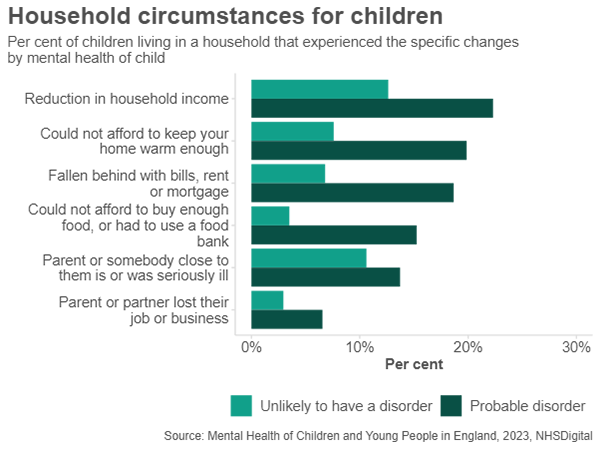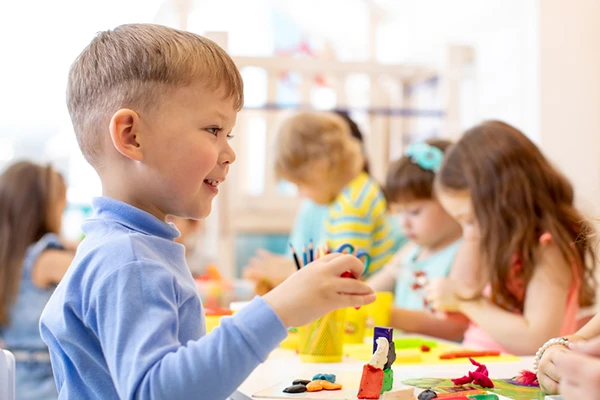“Your children need your presence more than your presents.”
— Jesse Jackson (Civil rights activist and former Shadow US Senator, DC)
As a child psychologist, I frequently interact with various children struggling with mental health issues. Parents often neglect the mental wellness of their kids, believing that they are providing them with enough facilities to keep them happy for life. But the real story is far from it. According to a recent study conducted by the World Health Organization, one in seven (14%) 10-19-year-olds struggle mentally and emotionally, yet these remain largely unrecognized and untreated.
Since this isn’t a topic that should be taken lightly, I have decided to share some of the most effective tips for parents to help them understand and deal more appropriately with their kids’ psychological needs.

Children are extremely sensitive, which makes it difficult for them to manage negative emotions. It is a parent’s responsibility to build a healthy relationship with their kids and provide them enough comfort and space to be vocal about their feelings.
As most youngsters often struggle to put their emotions in words, parents should always be extra cautious with them and look out for the following signs:
A child may not directly communicate his thoughts, but you can observe it through his behavior. Isolation, aggression, fear, and anxiety are some common symptoms of emotional distress in children. Such changes should not be taken for granted. Try to build a rapport and discuss it with them, or consult a professional if it continues for long.
Since children struggle with effectively communicating their feelings, many tend to isolate themselves as a solution. Parents must look out for such changes in habits, as leaving a child alone with his/her negative thoughts can be extremely dangerous.
A person’s mental state can be observed through their eating habits. Abnormal eating patterns like emotional eating, overeating, skipping meals, and restricting certain meals can be manifestations of a struggling mind. If you observe such behavior in your kids, consider consulting a professional.
Parents ought to keep an eye out for such trends, identifying these early signs can save children from bigger psychological issues and traps.
DO YOU KNOW?
According to findings, globally, 8% of children and 15% of adolescentsexperience a mental disorder.
“Home is where our story begins…”
The environment you live in greatly influences your life. That is why parents should understand that since children are in their growing age, they observe and learn a lot from everything going on around them. The large impact of household conditions on a child’s mental health can be observed in the following infographics:

There are hundreds of studies highlighting the significant role of the home environment on a child’s mental well-being. Positive and calm environments foster healthy development. On the other hand, negative actions like talking aggressively, fighting, and lying, in front of your kids can have adverse effects on them. They might unintentionally catch those gestures, molding their behavior based on it.
As a professional, I advise all parents/guardians to keep the following steps in mind, to ensure that their child grows in a thriving and pleasant environment:
Remember that family starts with you, make sure to provide an environment that includes positive interactions, freedom of expression, respect, modeling, and sharing of opinions, and also spend quality time together as much as possible.
No matter how gently you keep your children under your roof, the truth is at some moment they will have to go out and face the real world, they may not be as kind to them as you are. Hence, it is important for them to be resilient to navigate through the challenges of life.
Parents can play a great role in it by allowing their children to experience challenges and hold their hands through them to teach them the ways of this world. Encourage them to take responsibility, and make choices for themselves, this will promote independence and also raise their self-confidence.
It is no secret that physical and mental soundness are intricately connected. Parents should encourage and ingrain healthy lifestyle choices in their kids if they wish for their holistic growth.
I understand that it is quite difficult for youngsters to switch from chocolates to carrots, but the earlier this change is implemented, the better. Contrary to popular belief, no, you do not need to strictly cut off these treats from their diet. Everything in moderation is fine, remember that the quantity and frequency of these items matter a lot.
A healthy lifestyle does not end with food, make sure that your child is physically active as well. Putting them in any sport of their choice will not only keep their body moving, but it will also improve their mental health and teach them many values that a child can only learn through sports.
Like I said before, kids are really sensitive and learn things way faster. So, it will be easy to develop healthy lifestyle habits at this age.

Many parents struggle to understand that the times have changed. We have moved past the times when technology and mobile phones were only a resource for the privileged. Nowadays, barely any household is left where mobile phones, laptops, and other screens have not made their debut.
Needless to say, these screens have become the new toy for youngsters, which is obviously not the most healthy habit for them. Parents often complain about their kids’ excessive screen time, but very few of them realize that they can turn this habit of their children into something productive. There are numerous online teaching programs made especially for youngsters that can help promote mindfulness, mental wellness, and emotional intelligence.
Another thing I would like to add here is that parents should present an example of a balanced usage of technology in front of their children. If you spend time sitting in a corner with a phone in hand, your child will most likely pick up that habit. If your child has passed that stage and is already addicted to screens and shows signs of behavioral challenges, then you should definitely take the professional route and consider rehab.

Since children spend a major percentage of their day at school, it becomes another powerful avenue for promoting a child’s mental well-being and development. Fortunately, schools these days are increasingly shifting their focus to their student’s psychological state and offering reliable support for them to deal with cognitive and emotional challenges they may face in their lives.
By actively engaging with schools and community programs, parents can advocate for their child’s needs and collaborate with professionals to ensure comprehensive mental support.
In this highly digital, busy, and fast-paced world, children often struggle to make a place for themselves and face several mental health challenges, which drive them to poor life choices. Parents can help them navigate smoothly through these crucial years of their lives.
As a parent, you can take a few measures to improve your child’s psychological well-being. These include understanding childhood mental health trends, creating a supportive environment, fostering resilience, promoting healthy lifestyle choices, leveraging technology to facilitate learning, and engaging with school and community programs.
With these habits, you will be able to ensure the mental well-being and overall development of your child.
